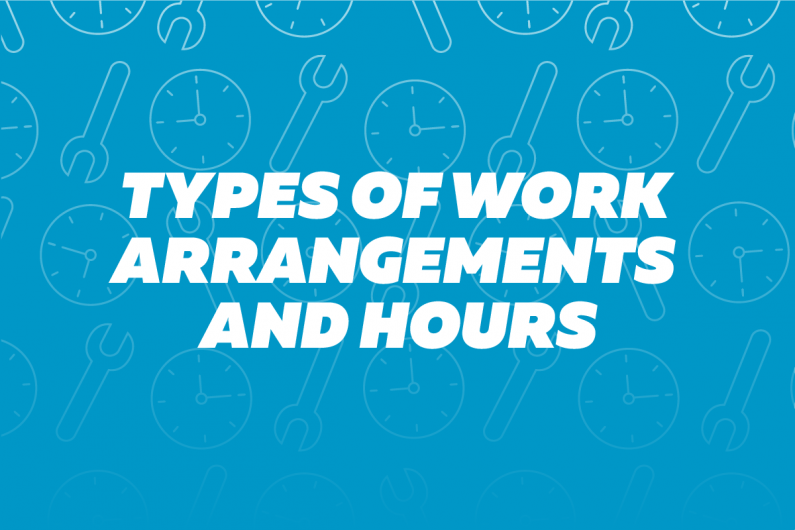Types of work arrangements and hours

Find the working arrangement that fits your career and lifestyle.
What's on this page?
Full-time work
- Full-time work usually means a person works 40 hours a week, but could mean working between 30 and 40 hours.
- Full-time employees sometimes work shifts, and may work outside of normal business hours. These shifts may be set hours, or change from week to week.
Part-time work
- Part-time work means a person works a set number of hours each week, which can range from a few to around 30 hours.
- Part-time work is a good option if you have family members to look after, are studying or have a main job with irregular hours.
Casual work
- Casual workers are usually hired for one-off business needs or ongoing, irregular work. For example, a retail store may need extra help over the Christmas period and hire some casual staff for the month of December.
- Casual work can lead to full-time work and is a good way to meet people in industries you want to work in.
Contractor or freelance work
- Contractors or freelancers are similar to casual staff, but are usually hired to do a particular piece of work. They often have specialist skills that an organisation needs for specific projects.
- Contractors can be self-employed, or work through an agency or business.
- Contractors may work part-time or full-time hours for a fixed period of time.
Self-employment
- Self-employment is common in a wide range of industries and occupations in New Zealand. For example, courier drivers, plumbers and accountants are often self-employed.
- Self-employed workers may be contracted to work for different organisations, or have their own business and employ other staff.
Portfolio work
- Portfolio work means working for different employers in two or more part-time roles. This can include contract or freelance work. Together, these jobs can add up to full-time work.
- The work could be in quite different fields.
Seasonal work
- Seasonal work can only be carried out at certain times of the year.
- Seasonal work is usually on farms and in forests, orchards and market gardens.
- Seasonal workers may need to move around the country to find jobs.
Find out more
Updated 30 Sep 2020